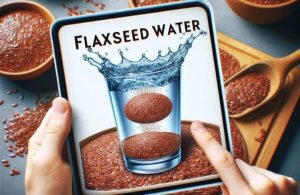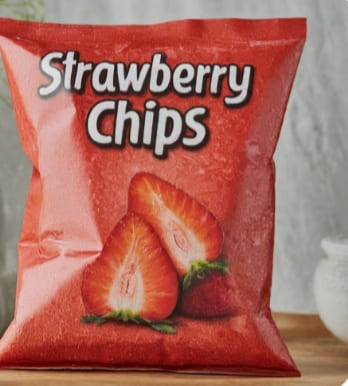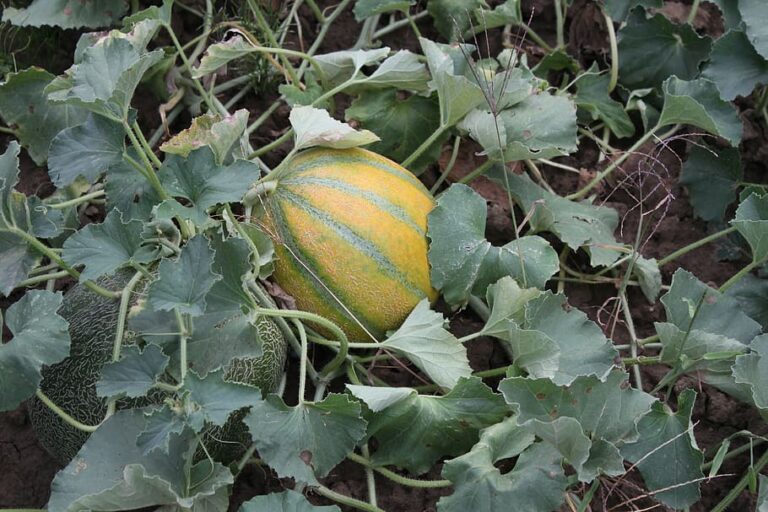
Veggie chips are a tasty and healthy alternative to potato chips. They are made from thinly sliced vegetables that are fried, baked, or dehydrated. These chips can be made from a variety of vegetables, including sweet potatoes, kale, beets, carrots, and green beans and Offer many health benefits.
Nutritional Value of Veggie Chips
The nutritional value of veggie chips can vary depending on the specific vegetables used, the cooking method, and any additional ingredients or seasonings. However, in general, veggie chips are a lower-calorie option than potato chips and can be a good source of fiber, vitamins, and minerals.
Here’s a breakdown of the nutrients you can typically find in veggie chips:
- Calories: One ounce (28 grams) of veggie chips typically contains about 120-150 calories.
- Fat: Veggie chips are usually lower in fat content compared to potato chips. They typically contain about 5-10 grams of fat per ounce, with varying percentages of saturated, monounsaturated, and polyunsaturated fat.
- Fiber: Veggie chips may contain some dietary fiber, depending on the vegetables used. On average, they provide about 2-4 grams of fiber per ounce.
- Protein: Veggie chips are not a significant source of protein. They typically provide about 1-2 grams of protein per ounce.
- Sodium: The sodium content of veggie chips will vary depending on the seasoning or salt added. On average, they contain about 100-200 mg of sodium per ounce.
- Vitamins and Minerals: Vegetable slices can retain some of the vitamins and minerals present in the vegetables used. For example, some veggie chips may be a good source of vitamin A, vitamin C, and potassium.
Also Read:
- Pringles Benefits & Side Effects
- Cheetos (Chips) Benefits, Nutrition & Side Effects
- Doritos Chips Benefits, Nutrition & Side Effects
- Fritos Health Benefits, Nutrition & Side Effects
- Parsnip Chips Benefits, How to Make it & Side Effects
- Strawberry Chips Benefits and How to Make It
Health Benefits Of Veggie Chips

In addition to their nutritional value, veggie chips have a number of health benefits. These benefits include:
1. Improved digestion
Veggie chips are a good source of fiber, which is important for a healthy digestive system. Fiber helps to keep the digestive system moving smoothly and can help to prevent constipation. Veggie chips also contain prebiotics, which are non-digestible fibers that feed the good bacteria in the gut. These good bacteria help to produce short-chain fatty acids, which have a number of health benefits, including reducing inflammation and improving insulin sensitivity.
How to maximize this benefit: To maximize the digestion-improving benefits of veggie chips, eat them with other foods that are good sources of fiber, such as fruits, vegetables, and whole grains.
2. Reduced cholesterol levels
Veggie chips are a good source of soluble fiber, which can help to lower cholesterol levels. Soluble fiber binds to cholesterol in the digestive tract and prevents it from being absorbed into the bloodstream. This can help to lower LDL (bad) cholesterol levels and raise HDL (good) cholesterol levels.
How to maximize this benefit: To maximize the cholesterol-lowering benefits of veggie chips, eat them with other foods that are good sources of soluble fiber, such as oatmeal, beans, and apples.
3. Improved blood sugar control
Veggie chips have a low glycemic index, which means that they do not cause a rapid spike in blood sugar levels. This makes veggie chips a good choice for people with diabetes or prediabetes.
How to maximize this benefit: To maximize the blood sugar-control benefits of veggie chips, eat them with other foods that have a low glycemic index, such as vegetables, whole grains, and lean protein.
4. Reduced risk of heart disease
Veggie chips are a good source of potassium, which is an essential mineral for a healthy heart. Potassium helps to regulate blood pressure and can help to reduce the risk of heart disease. Veggie chips also contain antioxidants, which can help to protect the heart from damage caused by free radicals.
How to maximize this benefit: To maximize the heart-protective benefits of veggie chips, eat them with other foods that are good sources of potassium, such as bananas, avocados, and leafy green vegetables.
5. Improved cognitive function
Veggie chips are a good source of vitamin A, which is essential for cognitive function. Vitamin A helps to produce neurotransmitters, which are chemicals that allow nerve cells to communicate with each other. Veggie chips also contain antioxidants, which can help to protect the brain from damage caused by free radicals.
How to maximize this benefit: To maximize the cognitive-function-improving benefits of veggie chips, eat them with other foods that are good sources of vitamin A, such as carrots, sweet potatoes, and spinach.
6. Reduced risk of cancer
Veggie chips are a good source of antioxidants, which can help to protect the body from damage caused by free radicals. Free radicals are unstable molecules that can damage cells and DNA, and they are thought to play a role in the development of cancer.
How to maximize this benefit: To maximize the cancer-protective benefits of veggie chips, eat them with other foods that are good sources of antioxidants, such as fruits, vegetables, and whole grains.
7. Improved bone health
Veggie chips are a good source of calcium and magnesium, which are essential minerals for bone health. Calcium helps to build and maintain strong bones, while magnesium helps to absorb calcium and prevent bone loss.
How to maximize this benefit: To maximize the bone-health benefits of veggie chips, eat them with other foods that are good sources of calcium and magnesium, such as dairy products, leafy green vegetables, and nuts.
Veggie chips can offer some health benefits depending on their ingredients and preparation methods. While they are made from vegetables and can be a good source of vitamins, minerals, and fiber, it’s essential to be mindful of certain factors to ensure their healthiness. Not all veggie chips are created equal; some may contain high levels of salt, artificial flavors, and preservatives, making them less healthy. When choosing or making veggie chips, consider the following to maximize their health benefits:
- Look for veggie chips with recognizable ingredients like cassava, tapioca, beetroot, corn, or sweet potato, and a short list of ingredients including seasonings.
- Check for the absence of E-numbers, preservatives, or long indecipherable words in the ingredient list.
- Opt for veggie chips cooked in healthier oils like olive, avocado, coconut, or sunflower oil.
- Making your own veggie chips at home can be a great way to enjoy a tasty snack without compromising on nutrition. You can easily make delicious homemade veggie chips using a few vegetables, oil, and seasonings, either by baking them in the oven or using an air fryer.
Recipes for Veggie Chips
Veggie chips are easy to make at home. Here are two simple recipes:
Baked Veggie Chips
Ingredients:
- 1 pound of vegetables (such as carrots, potatoes, or zucchini)
- 1 tablespoon of olive oil
- 1/2 teaspoon of salt
- 1/4 teaspoon of black pepper
Instructions:
- Preheat oven to 200 degrees F (93 degrees C).
- Cut the vegetables into thin slices.
- Toss the vegetables with the olive oil, salt, and pepper.
- Spread the vegetables on a baking sheet and bake for 15-20 minutes, or until they are golden brown and crispy.
- Let the veggie chips cool before serving.
Air Fryer Veggie Chips
Ingredients:
- 1 pound of vegetables (such as carrots, potatoes, or zucchini)
- 1 tablespoon of olive oil
- 1/2 teaspoon of salt
- 1/4 teaspoon of black pepper
Instructions:
- Preheat air fryer to 200 degrees F (93 degrees C).
- Cut the vegetables into thin slices.
- Toss the vegetables with the olive oil, salt, and pepper.
- Place the vegetables in the air fryer basket and cook for 10-12 minutes, or until they are golden brown and crispy.
- Let the veggie chips cool before serving.
Baked Sweet Potato Chips
Ingredients:
- 2 large sweet potatoes, thinly sliced (about 1/8 inch thick)
- 2 tablespoons olive oil
- 1 teaspoon sea salt
- 1/2 teaspoon paprika (optional)
Instructions:
- Preheat your oven to 375°F (190°C).
- In a large bowl, toss the sweet potato slices with olive oil, salt, and paprika (if using) until evenly coated.
- Arrange the sweet potato slices in a single layer on a baking sheet lined with parchment paper.
- Bake for 15-20 minutes, flipping halfway through, until the chips are crispy and lightly browned.
- Let cool and enjoy your homemade sweet potato chips!
Crispy Kale Chips
Ingredients:
- 1 large bunch of kale, stems removed and leaves torn into bite-sized pieces
- 2 tablespoons olive oil
- 1 teaspoon sea salt
- 1/2 teaspoon garlic powder (optional)
Instructions:
- Preheat your oven to 300°F (150°C).
- In a large bowl, toss the kale pieces with olive oil, salt, and garlic powder (if using) until evenly coated.
- Arrange the kale pieces in a single layer on a baking sheet lined with parchment paper.
- Bake for 15-20 minutes, tossing occasionally, until the kale chips are crispy but not burnt.
- Let cool and enjoy your homemade kale chips!
Zucchini and Parmesan Chips
Ingredients:
- 2 medium zucchini, thinly sliced (about 1/4 inch thick)
- 1/2 cup grated Parmesan cheese
- 2 tablespoons olive oil
- 1 teaspoon Italian seasoning
- 1/2 teaspoon sea salt
Instructions:
- Preheat your oven to 400°F (200°C).
- In a large bowl, toss the zucchini slices with olive oil, Italian seasoning, and salt until evenly coated.
- Arrange the zucchini slices in a single layer on a baking sheet lined with parchment paper.
- Sprinkle the grated Parmesan cheese evenly over the zucchini slices.
- Bake for 15
Potential Side Effects of Veggie Chips
Veggie chips are generally safe to consume, but some people may experience side effects. These side effects can include:
- Gas and bloating: Eating too many veggie chips can cause gas and bloating, especially if you are not used to eating a lot of fiber.
- Allergic reactions: Some people may be allergic to certain vegetables. If you experience any symptoms of an allergic reaction, such as hives, swelling, or difficulty breathing, stop eating the veggie chips and seek medical attention.
If you experience any side effects after consuming veggie chips, stop eating them and talk to your doctor.:** Some people may be allergic to certain vegetables. Symptoms of a vegetable allergy can include hives, swelling, difficulty breathing, and anaphylaxis.
If you experience any side effects after consuming veggie chips, stop eating them and talk to your doctor.
Veggie Chips FAQs:
How do veggie chips compare to other types of snacks in terms of calories and fat?
Veggie chips are generally lower in calories and fat than other types of snacks, such as potato chips, tortilla chips, and crackers. For example, a 1-ounce serving of baked veggie chips has about 130 calories and 5 grams of fat, while a 1-ounce serving of potato chips has about 150 calories and 10 grams of fat.
What are some common ingredients in veggie chips?
Common ingredients in veggie chips include:
- Vegetables (such as carrots, potatoes, zucchini, and beets)
- Oil (such as olive oil, avocado oil, or coconut oil)
- Salt
- Pepper
- Other seasonings (such as garlic powder, onion powder, or paprika)
What are some common seasonings that can be added to homemade veggie chips?
Some common seasonings that can be added to homemade veggie chips include:
- Salt
- Pepper
- Garlic powder
- Onion powder
- Paprika
- Chili powder
- Cumin
- Oregano
- Thyme
- Rosemary
Are there any specific vegetables that are not suitable for making veggie chips?
Some vegetables are not suitable for making veggie chips because they are too watery or have a high sugar content. These vegetables include:
- Cucumbers
- Tomatoes
- Onions
- Peppers
- Mushrooms
If you are unsure whether a particular vegetable is suitable for making veggie chips, it is best to err on the side of caution and avoid using it.
Sources:
[1] https://www.utzsnacks.com/products/good-health-veggie-chips
[2] https://vacavillefruit.com/products/veggie-chip-medley
[3] https://thebigmansworld.com/oil-free-baked-veggie-chips-paleo-vegan-gluten-free/
[4] https://thenutmarket.com.au/blogs/health-benefits/are-veggie-chips-healthy-everything-you-need-to-know
[5] https://www.foodnetwork.com/healthyeats/healthy-tips/2011/10/veggie-chips-are-they-healthy
[6] https://time.com/5590711/veggie-chips-straws-vs-potato-chips/
Learn More:
- Pineapple Chips Health Benefits, Recipes
- Mango Chips Nutritional Value, Benefits, Recipes
- Quinoa Chips Nutrition, Health Benefits & Recipes
- Lentil Chips Health Benefits & Recipes
- Health Benefits of Bean Chips & Recipes to Try at Home
- Yam Chips Benefits, Recipes, & Side Effects
- Pumpkin Chips Benefits, Nutrition, Recipes, & Side Effects
- Plantain Chips Benefits & Side Effects























